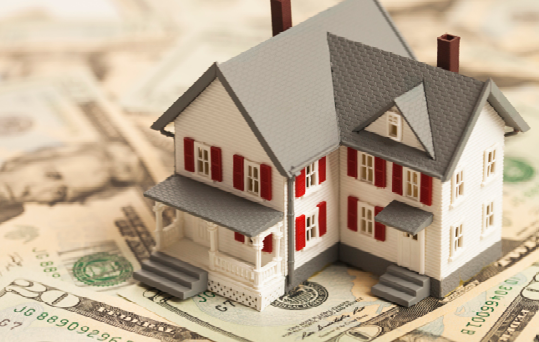What is a down payment?
When buying a house, you must make a payment upfront called a down payment. It is expressed as a percentage of the home's total cost, averaging from 5-20% on average. Some programs allow just 3% down for qualified borrowers.
The higher your down payment, the more equity you will have in your new home. A larger down payment may also help lower closing costs when you finally purchase the home.
How much should I put down for a down payment?
The amount of your down payment will depend on various factors, such as the type of loan you are getting, the size of your budget, and how much equity you want in your home.
Generally speaking, financial experts suggest aiming for 20%. This amount can help you avoid paying private mortgage insurance (PMI).
What is equity in a home?
Equity is the difference between the value of your house and how much you owe on it. As you make additional payments, such as a down payment or mortgage payments, this equity will increase over time.
Tips on how to save for your down payment
Create a budget to determine how much you can save each month
Before you start saving for a down payment, it is important to figure out your monthly expenses and how much money you can realistically set aside.
Start an automatic savings plan
Automatically transferring a specific amount of money from your checking account each month into a separate savings account dedicated solely to the down payment will help you stay on track with your savings goal.
Find ways to make extra money
Whether it's taking on extra shifts at work, doing freelance jobs, or selling items you no longer need, finding ways to make a little extra money will get you to your goal faster.
Cut back on unnecessary expenses and focus on your goal of buying a home
Every dollar you save adds up. So cut back on buying unnecessary items such as eating out, shopping, and entertainment expenses to free up more money for your down payment fund.
Research different loan options available to help you get the best rates possible
Look into different loan options such as FHA and VA loans and determine what you qualify for. Researching the different types of loans available will help you get the best rate possible, which can save you a lot of money in the long run.
Set realistic timelines when it comes to achieving your goal
Buying a house is something that takes time to happen. It takes time and dedication. Set realistic timelines for yourself and create a plan to help you stay on track with your goal of owning a home.
Know that your down payment is not the only upfront payment needed for your mortgage
On top of the down payment, you will need to factor in other upfront costs such as closing costs, homeowner's insurance, and funds to start escrow. The amount of your down payment, your credit score, and the type of mortgage you get will impact these other costs.
So keep this in mind when saving for your down payment. Just because you save 20% down for a house doesn't mean you're in the clear yet. You may have to use some of those funds for the other costs associated with closing a mortgage as well as a whole house inspection or possible repairs.
Frequently Asked Questions
Do you have to put 20% down on a house?
No, you do not have to put 20% down on a house. Depending on your loan type, your down payment could range anywhere from 0-20%.
What is the lowest down payment for a house?
The lowest possible down payment for a house depends on the type of loan you are getting and what you qualify for. Generally speaking, the lowest possible down payment is 0%, although it is not recommended to put zero money down when buying a home.
Can you buy a house without a down payment?
Yes, you can sometimes buy a house without a down payment. The most common way to do this is through government-backed loans such as FHA or VA loans available to certain buyers.
How does my down payment affect my mortgage interest rate?
A larger down payment can help you qualify for a lower interest rate. The more money you put down upfront, the less risk there is to the lender and the lower your interest rate may be.
Can I use a gift or loan for my down payment?
Yes, you can sometimes use a gift or loan for your down payment. However, it is important to check with your lender first to ensure they allow this and that the source of the funds meet their requirements.
Is mortgage insurance required if I make a smaller down payment?
Yes, mortgage insurance may sometimes be required if you make a smaller down payment.
Mortgage insurance is an additional cost that may be added to your monthly payments, so it is recommended to try and save up at least 20% of the purchase price for your down payment if possible.
What is the average monthly insurance cost?
The cost of monthly insurance payments depends on various factors, including the size and type of your loan. The two key factors that impact how much you pay are how much you put down and your credit score. Generally, the average monthly insurance payment is around 0.3%-1% of the principal balance on your loan.
Can I use retirement savings for a down payment?
Yes, you can use retirement savings for a down payment. However, it is important to speak with your financial advisor first to make sure you understand the potential consequences of using retirement funds for this purpose.
Conclusion
Congratulations! You are one step closer to becoming a homeowner—now you are ready to take the next step. To ensure you get the right mortgage for your needs, talk with a Purdue Federal mortgage specialist today. We can answer all your questions about down payments, equity, and mortgages and help ensure you get the best loan for your situation.


